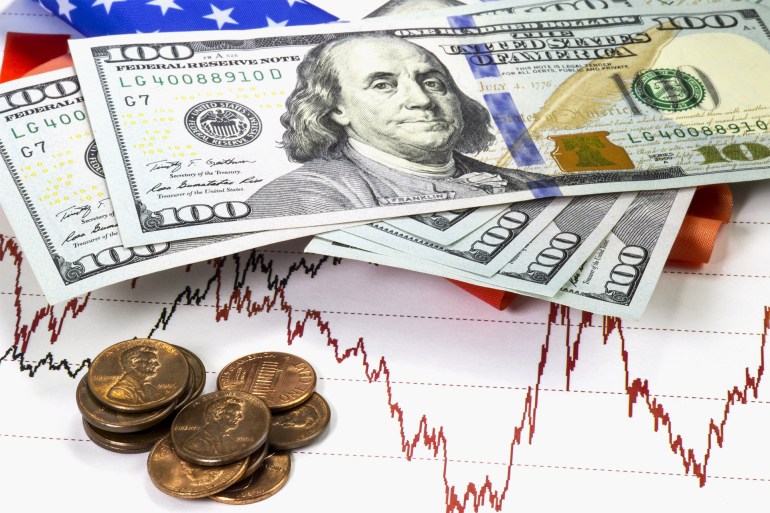European shares opened lower on Monday, after weak economic data from China fueled fears of a global recession, and gold fell to its lowest level in three and a half months as the dollar rose.
The pan-European Stoxx 600 index fell 0.6% by 07:15 GMT, after posting its first weekly gain in 5 weeks on Friday.
China's April retail sales fell 11.1%, almost double expectations, while industrial production fell 2.9% at a time when analysts were looking for a slight increase, raising fears that the world's second largest economy will shrink this quarter amid the closure imposed to combat the outbreak of Covid -19.
The travel and leisure sector led the losses among the sub-indices, down by 1.4%.
The shares of the health care sector were the biggest losers, while shares of luxury goods companies, including "LVMH" (LVMH), owner of the Louis Vuitton brand, which derives a large part of the demand from China, fell by 1.1%.
This trend was bucked by the telecommunications sector, which rose 0.6%, supported by a 3.5% jump in Vodafone, after the UAE's Emirates Telecommunications Group (Etisalat) purchased a 9.8% stake in the company.
A new decline for gold
In addition, gold fell to its lowest level in 105 days with the rise of the dollar, as gold prices fell today more than 1%, the lowest level since late January, with the continued impact of the strength of the dollar on demand for the yellow metal, which is denominated in the US currency.
Spot gold fell 0.8% to $1,797.82 an ounce by 0815 GMT.
US gold futures fell 0.6% to $1,797.40 an ounce.
Earlier in the session, gold prices fell 1.4 percent to the lowest level since January 31, recording $1,786.60 an ounce.
On Friday, the yellow metal saw a weekly loss for the fourth consecutive week.
The US dollar consolidated its gains near a two-decade peak as weak data on the Chinese economy hurt cyclical currencies (Shutterstock)
The dollar consolidates its gains
On the other hand, the US dollar consolidated gains near a two-decade peak as weak data on the Chinese economy hurt cyclical currencies, including the British pound and the Australian dollar, reducing the attractiveness of gold as a safe haven for holders of other currencies.
The US central bank raised interest rates for the first time during the pandemic period in March by 25 basis points, as it sought to tighten monetary policy.
Although gold is considered a haven from inflation, it is sensitive to increasing US interest rates in the short term and to increasing bond yields, both of which increase the opportunity cost of holding gold.
As for other precious metals, silver fell 0.2% to $21.02 an ounce, and platinum fell 0.5% to $934.16 an ounce.
Palladium fell 1.3 percent to $1,918.59 an ounce.

